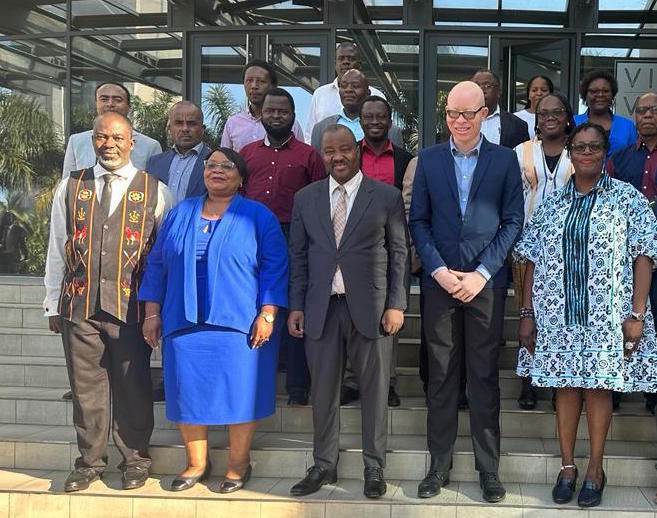|
Getting your Trinity Audio player ready…
|
The African Union Development Agency (AUDA-NEPAD) has initiated the development of communication training curricula and modules to help address the current policy needs, gaps, and challenges of genome editing (GEd) on the continent.
Officially opened in Maputo, Mozambique today, the workshop seeks to develop a core module on genome editing communication that can be adapted to different stakeholders’ training needs to enhance the uptake of the tool.
The aim is to effectively communicate genome editing in agriculture and promote product development to improve nutrition, curb plant diseases, and reduce environmental footprint.
In his address while officially opening the workshop, Hon Daniel Nivagara, the Minister of Science, Technology and Higher Education (MCTES) paid tribute to the organizers of this event, the AUDA-NEPAD Centre of Excellence in Science, Technology, and Innovation, as well as the National Centre for Biotechnology and Biosciences (CNBB) of Mozambique.
Mozambique is participating in the Genome Editing Initiative as part of the 8 countries in West, East, and Southern Africa. Following up on the actions to develop national communication and advocacy strategies, an expert team of Scientists, R&D, Policymakers, Biosafety Regulators, and Media Representatives are developing a core module that will be important to guide in-country work to optimize agriculture in Africa.
“As is well known, genome editing has a huge potential for benefits in Agriculture, being directly linked to the goals of the Sustainable Development Goals 2030 (SDG 2030), such as Hunger Eradication and Sustainable Agriculture (SDG 2), Sustainable Consumption and Production (SDG 12), Action against Change Global Climate (SDG 13), Marine Life (SDG 14), and Terrestrial Life (SDG 15).
“The successful adoption of technology in agriculture depends heavily on producers’ knowledge of agronomic and climatic conditions, and on consumer acceptance and compliance with the country’s regulatory frameworks. Thus, technology cannot be seen in isolation, but needs to be contextualized considering the socio-cultural configurations of societies,” the Minister said.
Susan Dada, AUDA-NEPAD’s Senior Programme Officer for Centres of Excellence said the 4-day writing workshop seeks to identify the themes and modules to be covered under the communication training materials on GEd.
The Maputo workshop brings together the eight (8) National Leading Agencies of the Initiative, Scientists, Policymakers, Research and Development Experts, as well as private sector representatives from the Countries involved in the implementation of the Genome Editing Initiative (GEd). These include Burkina Faso, Ghana, Nigeria, Ethiopia, Kenya, Malawi, Mozambique and Zimbabwe.
Due to demographic and climatic pressures that have been registered in recent years, the food industry has faced challenges towards increasing production and value addition. The initiative is part of the African Union’s drive under Agenda 2063 to capitalize on emerging technologies to make a significant contribution to value and supply chains towards industrialization.
